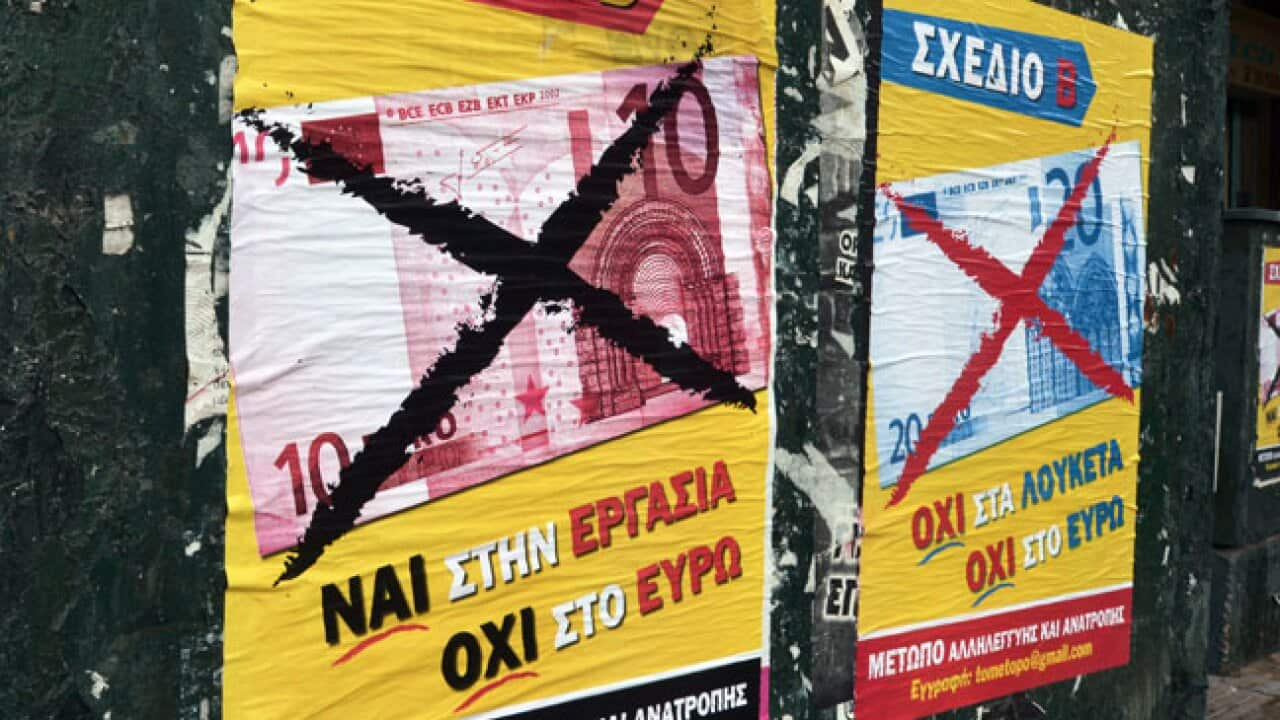Worldcrunch.com / LE MONDE
ATHENS - Everyone knows that Greece's debt is spiraling out of control, but few know that the country is an oil producer, though its production is minimal: 2,000 barrels a day – 0.5% of just its own needs.
During the 1980's, however, Greece produced 30,000 barrels a day – 12% of its consumption – through oil fields off the coast of Kavala, in the northern Aegean Sea.
Oil deposits are nothing new in Greece. Herodotus wrote about them in the 5th century B.C. “I have seen pitch drawn up out of a lake on the island of Zakynthos (…) They let down a pole into this lake, with a myrtle branch fastened to the end, and pull out the pitch that clings to the myrtle, which has the smell of asphalt.”
Twenty-five centuries later, things are not so simple. In the late 1990's, there were unsuccessful drilling attempts in western Greece, notably in the Gulf of Patras, where the island of Zakynthos is located. Afterwards, the drilling stopped for almost 15 years. Greece did not try to explore other oil deposits, preferring to borrow money to pay for its oil, further increasing its debt.
In the meantime, Israel and Cyprus were busy discovering gas deposits in the deep waters off their countries. Neighboring Albania was deploying oil rigs.
It was not until it was faced with a tragic crisis that Greece decided to re-launch its own gas and oil exploration in late 2011. Greece has recently started accepting bids to explore the three regions that had already shown potential in the late 1990's: Ionnina, the largest city of the Epirus region in northwestern Greece, near the Albanian border; in the Ionian sea, in the Gulf of Patras; and in Katakolo.
There are known offshore oil deposits in Katakolo, but they are small, representing an estimated four million barrels a day. Estimates for Ionnina and the Gulf of Patras are 50 to 100 million barrels.
Needless to say, major oil companies did not rush to bid on these Greek deposits. The two main candidates are Greek: Hellenic Petroleum, tied to Melrose (Italy) and Edison (UK), and Energean Oil & Gas, which is already exploiting the Kavala deposit, in partnership with Schlumberger. British oil company Chariot is bidding in the Epirus region, and the Greek government has already announced that it has selected several other areas across the country which will soon be open to bidding.
Deep below the Mediterranean
But since Israel and Cyprus discovered oil reserves in the Mediterranean, it is the waters off the southern coast of Crete that are the most sought-after. In September, Norwegian company Petroleum Geo Service was chosen to carry out seismic surveys on 220,000 square kilometers of sea. “These studies will take about 18 months. In 2014, we will know if there's a chance of finding oil or gas. The government will then be able to open the bids for drilling rights. After that, we'll have to wait another five to seven years to see results,” says Theodore Tsakiris, in charge of the Geopolitics of Energy program for Eliamep, a think-tank.
Geologist Elias Konofagos believes that the most promising region is located south of Crete, facing Libya. “If there are deposits, most of them are deep underwater. We have compared geological data south of Crete to other, similar areas, like Venezuela or Timor, where gas and oil deposits were discovered.”
Given the similarities with the Levantine Sea, where the Israeli and Cypriot deposits were discovered, Konofagos believes these are mostly gas deposits, which are probably located 1,500 or 2,500 meters deep. “Every year we import between 12 and 14 billion euros worth of gas and oil. That's the amount Greece's creditors want the country to save by implementing austerity measures,” he says, regretting that his country has wasted 15 years since the late 1990's.
The next couple of years will be crucial for exploration. Today it's nearly impossible to tell whether there are important deposits and if they are exploitable. “In 1999, only two people thought there was gas in Israel and Cyprus, and that's when they discovered three of the biggest gas deposits,” says Konofagos.
But the CEO of Energean, Mathios Rigas, warns that it can only work if conditions above ground start to change. “If seismic surveys show there is gas and oil in the Mediterranean and that we can also start production in Epirus and in the Ionian Sea, certain things will have to change," he says. "If the international market has the impression it is still dealing with the old Greek way of doing things, with its lack of transparency, no one will be interested.”

